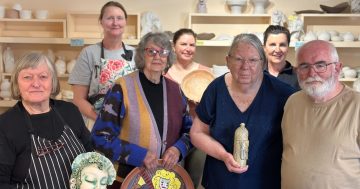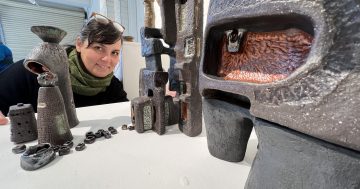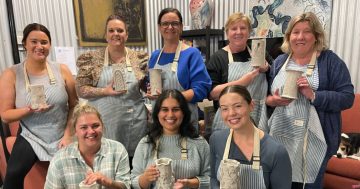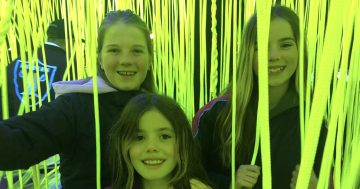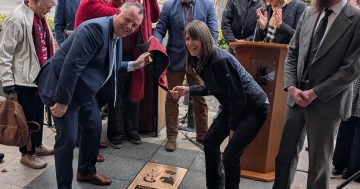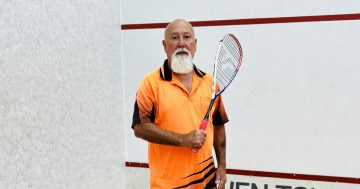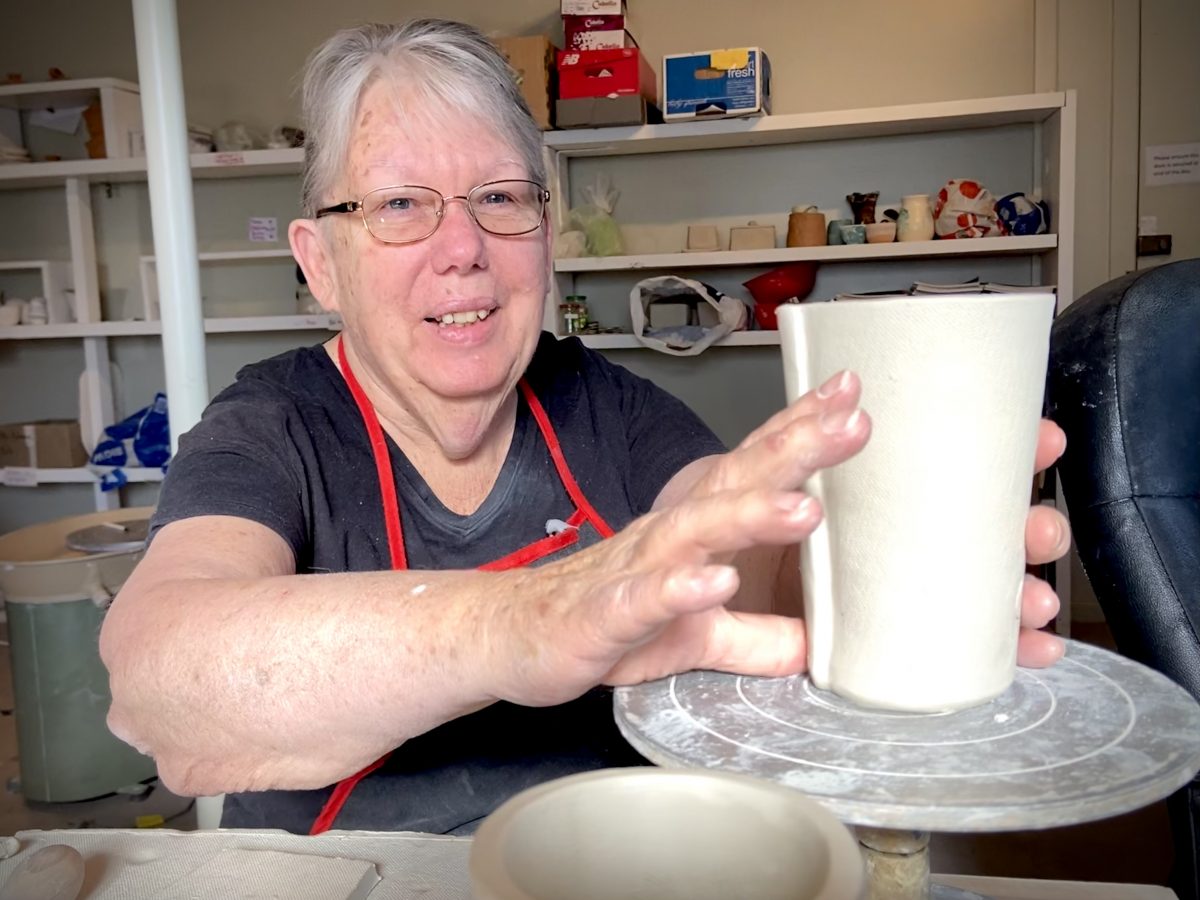
Wagga Potters Club president Diane Mahony at work. Photo: Chris Roe.
Wagga based potter Diane Mahony has a simple explanation for why she enjoys working with clay.
“Mum would never let me play with mud as a child,” she says wryly.
Diane is the president of the Wagga Potters Club and says the art form has boomed in popularity in recent months.
“We can’t keep up with the demand for clay at the moment, we’ve got none left!” she says.
Diane says it seems pottery (once considered a pastime for “old ladies”) is back in fashion.
“Since COVID, it’s just come back with a bang,” she explains.
“I think that people stopped having to do their stressful jobs and when they were stuck in their houses, they started to look around at other things and thought ‘when I’m free, I’m going to do something for me’.”
Diane is set up in a cottage on Tarcutta Street that serves as both a studio and a shop, selling the club’s creations to the public at a very reasonable price.
“It’s not about the money,” she says with a shrug.
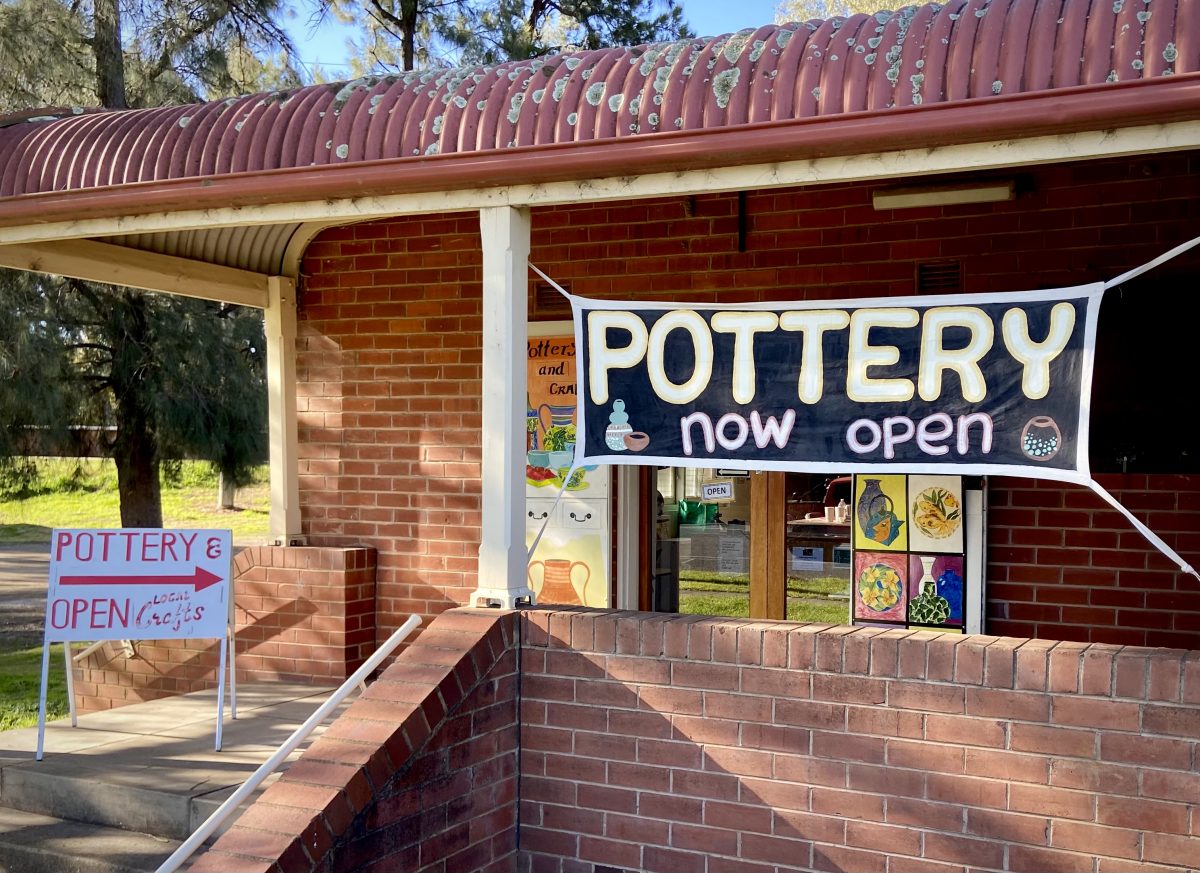
The Wagga Potters Club on Tarcutta St. Photo: Chris Roe.
Founded in 1969, the Wagga Potters Club is run by volunteers and is all about promoting the craft and sharing beautiful and useful objects with the community.
Diane says they run regular lessons in both “throwing” and “hand building” on the three wheels and benches in the studio and she says new members are signing up every week.
“I get calls every couple of days for people wanting lessons,” she says.
“We’re booked out now. Can’t get a lesson until September.”
The club boasts its own gas kiln and they also have access to a Japanese-style Raku kiln that involves removing the pottery at a bright red heat and placing it into another container with combustible materials.
Diane loves the variations that can be produced and the suprise of seeing how something turns out.
“You can put exactly the same glaze on exactly the same shape pot and fire it in exactly the same place in the kiln and get a totally different result,” she smiles.
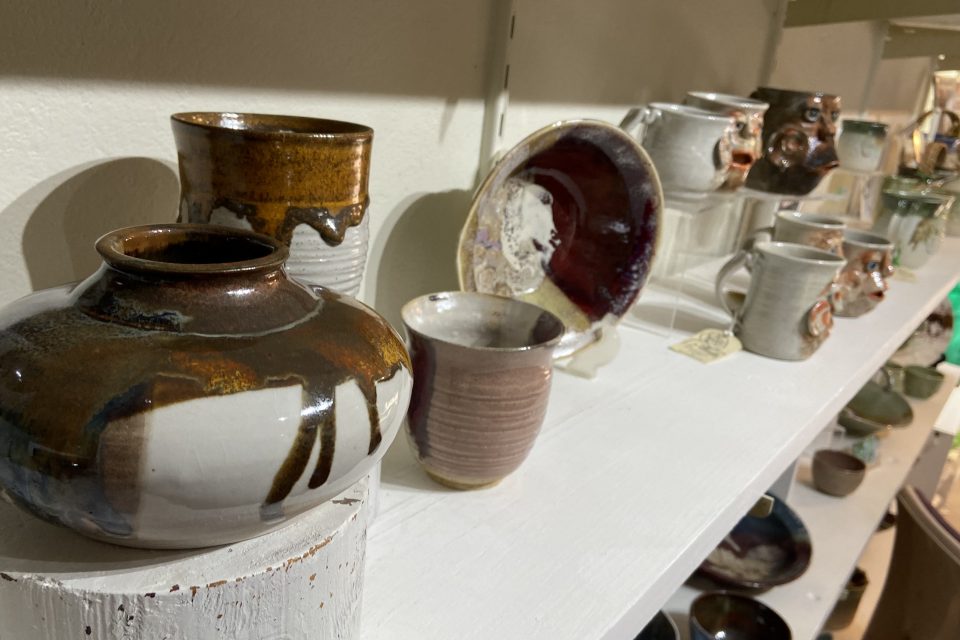
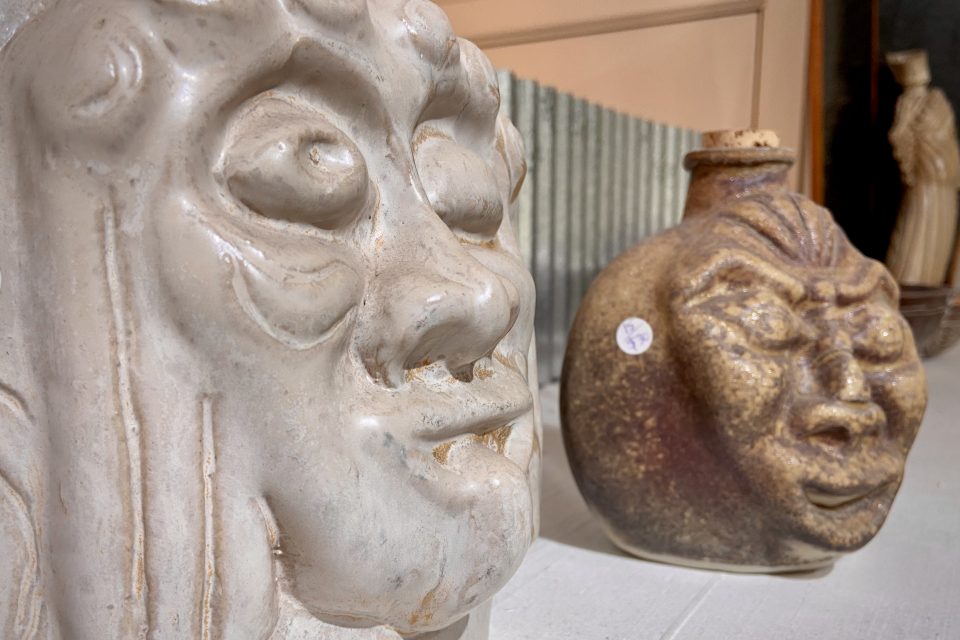
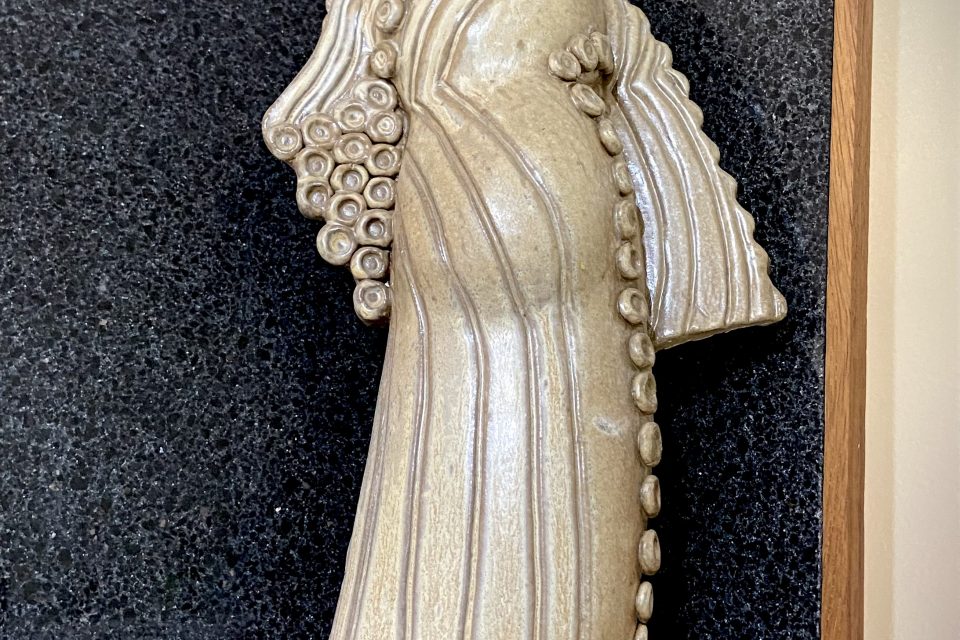
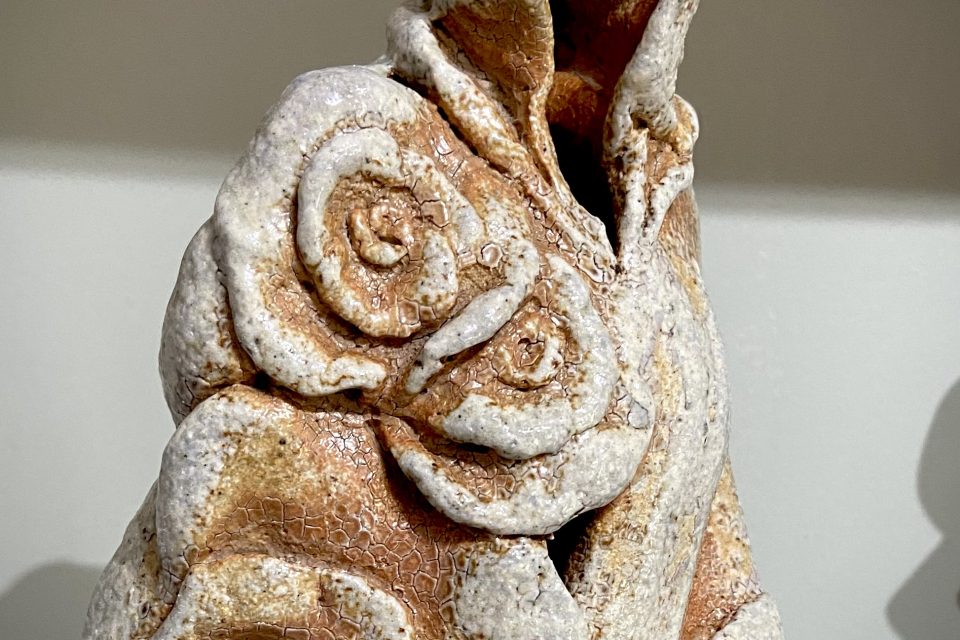
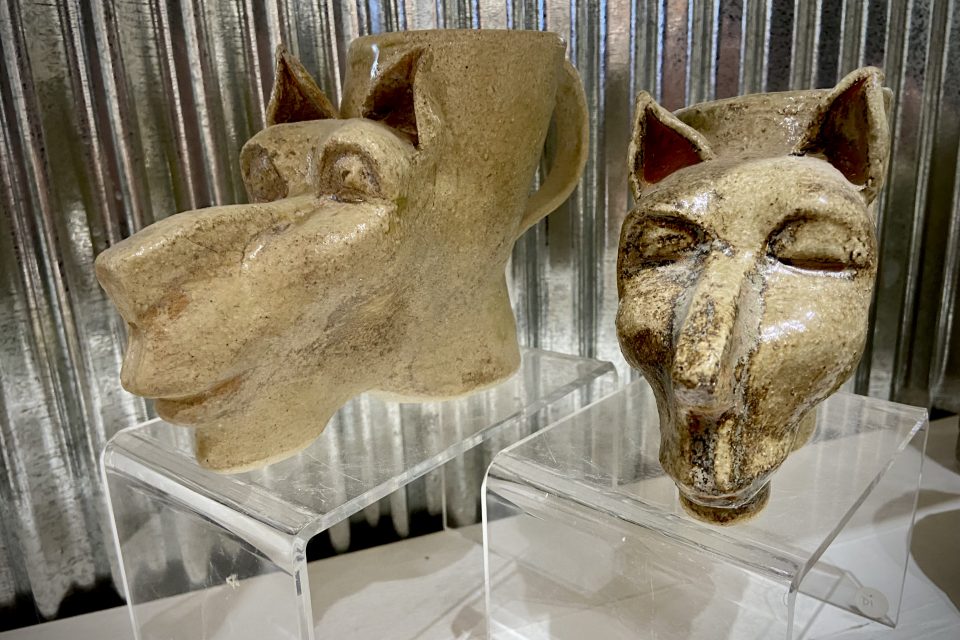
Her own work is less about function and more about form.
“I was never terribly interested in doing domestic things, like throwing 10,000 bowls or cups or things like that,” she explains.
“I like things a little bit offbeat, so I do a lot of sculptural work.”
But more than the finished product, Diane says pottery is all about the process.
“A lot of students say they find it so relaxing,” she says.
“I tentatively said to a couple of mine, ‘do you really need to take lessons?’ and they replied ‘Don’t say we can’t come in, this is the best part of the week!’
“Friday afternoon, finished a stressful job, come in here and play with clay – it just lets them switch off.”
If you’d like to switch off and get your hands into some clay, you might have to wait for a lesson, but details can be found here.







